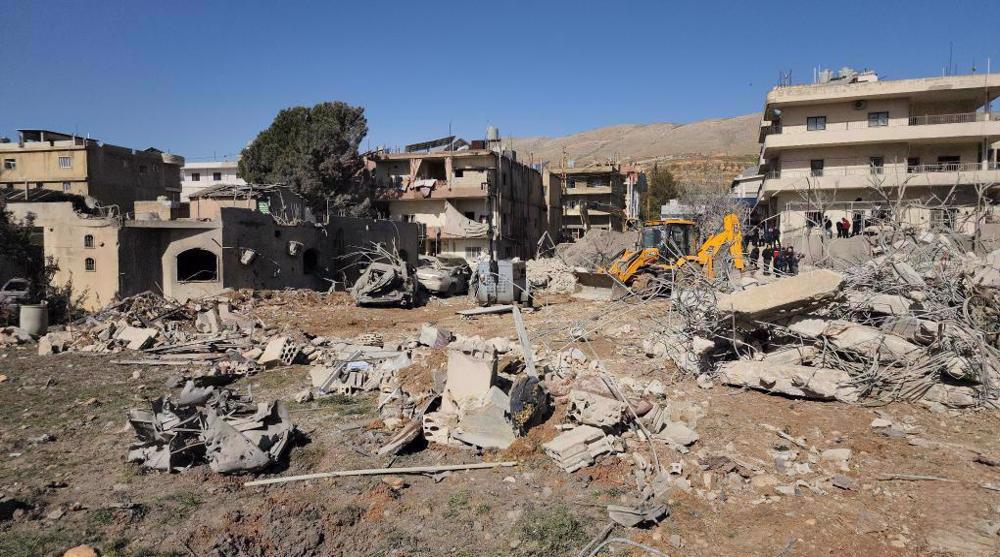Yemeni forces strike vessels linked to US, Israel with reprisal missiles in solidarity with Gaza
The spokesman for the Yemeni Armed Forces says the country’s naval forces and missile units have carried out three operations against vessels linked to the US and Israel off the nation's coast, in solidarity with Palestinians amid the ongoing Israeli onslaught on Gaza.
Speaking at a televised press briefing broadcast live from the Yemeni capital city of Sana’a on Tuesday night, Brigadier General Yahya Saree said the country’s forces targeted the American Maersk Sentosa container ship in the Arabian Sea with several ballistic and winged missiles.
Sarea added that Yemeni naval units targeted the Marathopolis ship in the Arabian Sea, and the MSC Patnaree ship in the Gulf of Aden with a number of drones.
He stressed that the three operations achieved their goals successfully, and the hits were direct and accurate.
Saree noted that his country’s forces will continue their anti-Israel operations until a permanent ceasefire is enforced in Gaza, and all restrictions on supplies of humanitarian aid for its residents are lifted.
He also said Yemeni military forces are fully prepared for action against any party that would support Israel, and would supply the United States and the Tel Aviv regime with munitions for strikes against the Arab nation.
Yemenis have declared their open support for Palestine’s struggle against the Israeli occupation since the regime launched a devastating war on Gaza on October 7 after the territory’s Palestinian resistance movements carried out a surprise retaliatory attack, dubbed Operation Al-Aqsa Storm, against the occupying entity.
Yemeni Armed Forces have said that they won’t stop their attacks until Israeli ground and aerial offensives in Gaza, which have killed at least 38,243 people and wounded another 88,033 individuals, come to an end.
The leader of the Ansarullah resistance movement, Abdul-Malik al-Houthi, has said that it is “a great honor and blessing to be confronting America directly.”
The attacks have forced some of the world’s biggest shipping and oil companies to suspend transit through one of the world’s most important maritime trade routes. Tankers are instead adding thousands of miles to international shipping routes by sailing around the continent of Africa rather than going through the Suez Canal.
Iran writes to UN, warns about dire consequences for perpetrators following Leader's martyrdom
Hezbollah strikes occupied Haifa in retaliation for Leader's assassination
Ansarullah mourns Leader's martyrdom as 'great loss' caused by 'most wretched terrorists'
Hezbollah offers condolences to Iranian nation over Leader’s martyrdom
US-Israeli strike targets IRIB facility; broadcasts continue
IRGC: Latest waves of Op. True Promise 4 led to tanker strikes, base shutdowns, heavy casualties
CENTCOM confirms US troops killed in Iran’s retaliatory strikes
China ‘strongly condemns’ US-Israeli assassination of Iran’s Leader

















 This makes it easy to access the Press TV website
This makes it easy to access the Press TV website